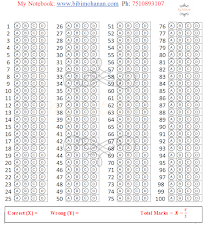ICDS Supervisor Exam Kerala PSC| FOOD POISONING and FOOD BORNE INFECTIONS
ICDS Supervisor Study Materials
FOOD BORNE INFECTIONS AND FOOD POISONING
Raw foods such as meat, fish, milk and vegetables grown on sewage purchased from the market are likely to be contaminated with harmful microorganisms.
These are generally destroyed during cooking or processing of the food.
Some of the microorganisms may survive due to inadequate heat processing.
Further, some of the foods if consumed in the raw state can cause food poisoning.
Recent studies have shown that food grains when stored in humid
atmosphere are infected by pathogenic fungus which can cause
serious illness.
A. Bacterial Infections
Some of the important diseases caused by pathogenic bacteria
contaminating foods are discussed below:
1. Typhoid and Paratyphoid
Shell fish and vegetables grown on sewage are common carriers of typhoid and paratyphoid.
Foods kept exposed for sale are liable to be infected by typhoid and paratyphoid bacteria as flies can transmit these bacteria from infected material to exposed foods.
The symptoms include vomiting, diarrhoea and fever.
2. Botulism
Botulism is usually caused by consuming canned foods contaminated by botulinum spores.
The causative organism is clostridium botulinum and it produces an endotoxin, which is highly toxic.
The exotoxin can be inactivated by heat
The incubation period is 8-36 hours.
The onset of the disease is sudden.
The signs and symptoms
disturbed vision, dizziness, and sometimes headache, abdominal pain and physical exhaustion.
The toxin affects the central nervous system causing paralysis affecting speech and swallowing.
Death from respiratory or cardiac failure occurs after a few days.
3. Clostridium Perfringens Food Poisoning
This is mostly associated with consumption of defectively
processed pre cooked meat product.
The causative organism is clostridium perfringens and the
symptoms are abdominal pain and diarrhoea.
The incubation period is 8 – 12 hours.
4. Salmonella Food Poisoning
The causative organism is Salmonella typhosa.
Defectively processed meat, fish and egg and raw vegetables grown on sewage are mainly involved in transmitting the infection.
The symptoms are vomiting, diarrhoea and fever.
The incubation period is 12 – 48 hours and the duration is for 1 – 7 days.
5. Staphylococcal Food Poisoning
The causative organism is staphylococcus aureus.
This organism produces an exotoxin and the poisoning is due to the presence of exotoxin in the contaminated food.
The toxin is heat stable.
Pre cooked animal foods are most commonly involved in this type of poisoning.
The symptoms are vomiting, diarrhoea and abdominal pain.
The incubation period is 2 – 6 hours
6. Streptococci
Streptococci are the causative agents for sore throat and scarlet
fever.
7. Shigella
This group causes bacillary dysentry.
The symptoms are loose motions with mucous and blood and abdominal pain.
It is caused mainly from consuming raw milk to which unclean water has been added and cooked food kept exposed.
Flies are the common carriers of this disease, transferring the bacteria from infected material to food.
B. Viral Infections
This is caused through water polluted with sewage.
The viruses however only multiply in living cells and not in food.
The various diseases spread include hepatitis, cholera and poliomyelitis.
C. Fungal Contamination of Foods
1. Fusarium and Cladosporium
This is caused due to the consumption of cereals and millets infected with fusarium and cladosporium.
2. Aspergillus Flavus
This fungus can grow in moist groundnuts, soyabean, cottonseed, legumes and cereals.
It produces toxins called as aflatoxins. These can cause liver damage and cancer.
D. Parasitic Infestation
The mode of transmission and the effects of some worm infestation is given in the following table.
WORMS MODE OF TRANSMISSION
1. Taeria saginata Infested pork
EFFECTS:
Forms cysts in the brain
2. Taeria saginata Through meat infested with tapeworm
EFFECTS:
Loss of appetite, palor
3. Diphyllobothrun latum Through sea fish
EFFECTS:
Results in Vit. B12 deficiency.
4. Ascaris lumbricoides Through people, food and water
(round worm)
EFFECTS:
Abdominal pain, palor, cramps.
5. Trichinella Spiralis Fine worm transmitted through infested pork,meat and its products
EFFECTS:
Nervous system get affected, sweating, acute pains, loss of appetite,
severe Conjuctivitis
6. Threadworms Through food infected with human feces.
EFFECTS: Anal irritation .Generally infects the lower bowel.
7. Entamoeba Histolytica Raw vegetables grown on sewage farms
EFFECTS:
Amoebic dysentry, epigastric pain, loss of blood in anaemia.
E. Toxicants Naturally Occuring in Some Foods
Some foods contains toxic substances which may cause serious
illness when consumed in large amounts.
An important example is the legume - Lathyrus sativus, which contains a toxin.
When consumed in large amounts, the subjects develop a crippling disease known as lathyrism.
Some varieties of mushrooms contain toxic substances which when consumed produce serious ill effects.
F Insect and Rodent Contamination of Stored Foods
1. Insect Infestation
Insect infestation of food grains causes heavy losses and damage to the quality of grains in storage.
Taste, flavour, hygienic quality and acceptability of the food grains are affected due to the presence of insect excreta, insect fragments and dead insects.
The content of B-Vitamins and the nutritive value of the proteins are also lowered.
2. Rodents
Damages caused by rodents to stored foods are as follows:
i. They consume large quantities of food grains.
ii. The hygienic quality of the grain is affected by the excreta of the rodents and also by some disease producing microorganisms present in the food grains.






![[Set 3] MCQ for ICDS Supervisor Exam|ICDS Supervisor Kerala PSC](https://blogger.googleusercontent.com/img/b/R29vZ2xl/AVvXsEirmpde6UGlx94eDLtWkrJ18PAc_d8GVw_K-4E1izTltkjugPJEyBVplbm_S85f0gxNowfcbT6afCPnAjTF0_TKYK9Lq7zm1fnQU-TPsKEosx0opg5d05b-nry5qBPrKUZMoVD7BOFpW-5jxoAlMCTysmHKi30ieam3tPtA_ohH_Z5D2Uu1PPxt-qZ38wY/s72-c/icds-supervisor-mcq.jpg)
